- Home
- Jeff Lindsay
Tropical Depression
Tropical Depression Read online
Tropical Depression
Jeff Lindsay
Copyright
Diversion Books
A Division of Diversion Publishing Corp.
443 Park Avenue South, Suite 1008
New York, NY 10016
www.DiversionBooks.com
Copyright © 1994 by Jeffry P. Lindsay
All rights reserved, including the right to reproduce this book or portions thereof in any form whatsoever.
This is a work of fiction. Names, characters, places and incidents either are the product of the author’s imagination or are used fictitiously. Any resemblance to actual persons, living or dead, events or locales is entirely coincidental.
For more information, email [email protected]
First Diversion Books edition August 2015
ISBN: 978-1-62681-736-4
More from Jeff Lindsay
Red Tide: A Billy Knight Thriller
This book is dedicated, with love, to the five women in my life:
To Lillian, who made it probable;
To Doris, who made it possible;
To Susan, who made it conceivable;
To Hilary, who made it inevitable;
and to Hannah, who made it enjoyable.
All my gratitude and love for making my life worth living and my book worth reading.
Chapter One
He was standing on the dock at City Marina as I came in. He still stood there beside the ice machine as I eased into my slip, tied up, and wound up business with the day’s charter.
I’d been fishing that day with a guy in his forties who ran a machine shop in Rochester and couldn’t talk about anything except the Buffalo Bills. It had been an okay charter—very good, in fact, if you just wanted a chance to get away from the wife and talk about football the way this guy did. We’d hit into a few permits on the flats south of Woman Key. We got one good jump out of a tarpon, a big one. My guy had been so flabbergasted by the size and majesty of the fish he’d forgotten to bow to it and the line had snapped. That happens maybe four times out of five, but he didn’t seem to mind. He said seeing something like that jump made the whole trip worth every penny. I wished I had that kind of outlook.
My charter was still in a good mood when he climbed off the boat, with his ears newly pink from the tropical sun. I glanced up the dock.
Roscoe just stood there, in a shadow made by the slant of the afternoon sun, over by the dockmaster’s shack, nursing a Coke and watching me tie off the spring lines, hose down the boat and the fishing gear, and filet a couple of three-to-four-pound mutton snappers we’d brought in from the cut on the near side of Ballast Key. By the time my charter had climbed into his rented Buick and headed for Duval Street and air-conditioning, I was getting curious—and a little mad.
It didn’t seem like a very nice way to act. I hadn’t seen Roscoe McAuley for almost eighteen months. Seventeen months, two weeks and four days was the actual count. Anyway, he hadn’t changed much: he was just a hair over six feet tall and not an ounce over 185. He was black, skin the color of shoe leather, with soft brown eyes you wanted to trust even when you knew better. He sported a thin mustache and a whiff of very expensive cologne. He looked about as much like Kirk Douglas as a man could and still be black.
Roscoe was a headquarters cop. What he was good at—and he was very good at it—was police paperwork and politics. He had risen far and fast in the LAPD without learning anything about how it was on the street, out there alone in a cruiser. He would probably go a lot further. He had a political streak in him that let him play all the right games on an instinctive level, and he was so smooth and sharp you could shave with his résumé.
Roscoe had been the one to try to talk me out of leaving. He had always been good at sincerity and making you feel like duty was a real thing, something you should care about and work hard at. He’d had a lot to say on the subject; it hadn’t been enough. I had taken my back pay and come back to Key West.
During the first bad days of trying to think up some reason not to swallow a bullet I had thought of this place, how I’d come here as a kid and learned about boats and fishing. It was the only good memory I could come up with that didn’t involve Jennifer and Melly, so I had come. I thought coming here would take me away from all the bad memories, but of course I was wrong about that. We all carry around inside us more than a lifetime of bad memories and we can never outrun them. We can only change the scenery.
I thought I had done that, and then here came a big hunk of the old scenery in the shape of Roscoe McAuley. He still just stood there, watching me. I finished stowing the clean-up gear and walked up toward the dockmaster’s. I pushed past Roscoe without saying anything and went in.
The air-conditioning hit me. I don’t mean that figuratively. Walking into the shack was like getting whacked on the forehead with a two-by-four. It was over ninety outside, and close to one hundred percent humidity, but inside the shack it was a bone-dry sixty-five degrees and the contrast had a weight to it that made your temples throb. It was like having an ice-cold waterbed dropped on you from a great height, and for a few seconds I just stood there panting and feeling my forehead shrink. Between the temperature and the darkness of the room after the heat and blinding sunlight of the flats, I couldn’t move. If somebody had wanted my wallet they could have walked up and taken it from me. But they would have been pretty disappointed in my wallet.
“Billy!” came the hoarse gargle from the cluttered corner where the cash register sat in the middle of a blinding stack of shiny-wrapped candy, fishing gear, waterproof suntan lotion, floating key rings, chewing gum, sunglasses, Slim Jims, and crap.
Captain Art was on his stool in the center of the glitz heap. This was not a surprise; Captain Art lived on the stool and I had never seen him leave it during business hours. He was over sixty, over three hundred pounds, and could have been poster boy for the Skin Cancer Foundation. His dark, leathery tan, built up by a life in the outdoors, was mottled with dozens of pink blotches. If you hung his hide on the wall it would look like an enormous off-color dalmatian from a three-year-old’s coloring book.
I stepped over. “Hey, Art,” I said. “Any messages?”
“No messages,” he said. “No charter fer tomorrow, either.”
He was looking at me funny, maybe a little hurt. “What?” I asked him.
“You telling me everything, Billy?”
“No, Art,” I said, “want to hear my third-grade report card? What’s up?”
He shook his head, a little sad, and gave a great loose-lunged cough. He cleared his throat and spat something the size and shape of a mouse brain into the standing ashtray beside him. It made a clang like a round-bell. “You got trouble out there, Billy. He’s just been standing there since right after one o’clock. What’s the deal? I got a right to know if I got trouble on my dock.”
“Old acquaintance, Art. He’s a cop. Won’t be any trouble.”
Art cocked his massive wobbly head to one side and looked at me, like Jabba the Hutt imitating a parakeet. I could hear his breath rattling in and out. “Don’t try and shit me. I never been wrong about something like this, Billy. I smell some trouble on that dude.”
“Cop smell,” I told him. “I’ll get rid of him.”
The phone rang, but Art looked at me for a full two seconds longer before he moved a huge, wobbling arm to answer it. “Shitwad,” he mumbled. He managed to get the phone up to his face around three or four extra chins and I went for the door, grabbing a bottle of mineral water from the cooler.
I had almost gotten used to the meat-locker cold of Art’s shack. So when I stepped back out onto the dock again the heat rose up from the pavement and smacked me hard. When I could breathe again I screwed the to
p off the bottle of water and looked to my right.
Roscoe was still standing there, hugging a pool of shade by the ice machine. His eyes were aimed down the dock now, to the channel under the bridge where one of the big party boats was coming in. I stood beside him and sipped the mineral water. Without taking his eyes off the big boat, he nodded at me.
“Hey, Billy,” he said softly. “You look good. Dark.” He gave his head a half-shake. “Sharp clothes, too.”
Like most fishing guides who work in the blistering Florida sun all day, every day, I was wearing a pair of tattered khaki shorts and an off-white, long-sleeved shirt. The shirt was about four years old, stained with blood and other fishy effluvia. I’d gotten it at Banana Republic because it had a lot of pockets, never knowing then it would end up as my fishing guide uniform.
“You always did have a good eye for clothes, Roscoe. But that suit is a bit much for Key West. It must be murder,” I said. He looked away for a few seconds and I studied him.
Always a sharp dresser, Roscoe was wearing a dark gray double-breasted number with a continental cut that must have set him back twelve hundred dollars. I could have been wrong about the price. The only place I’d ever seen one like it was on the movie moguls I’d busted—and on guys working their way into the upper levels of the LAPD, where Roscoe was inserting himself lately. I’d heard he’d even done some classes at the California Law Enforcement Command College, that dark-suited stepping-stone to Captain and beyond. They taught you all kinds of things about police command there, like choosing fabric.
Myself, I’d never had much use for that kind of suit. Of course, I’d never made Detective either, and maybe those two facts were not totally unrelated.
Roscoe shrugged. “You haven’t seen me in a year and a half and you want to talk about my clothes?”
“No. I don’t want to talk at all. But I told the dockmaster I’d get rid of you.” Just seeing him was rubbing salt in some wounds that still felt fresh, and I didn’t feel like being polite.
He nodded again, like he was expecting my bad attitude.
“You’re going to have to talk to me to get rid of me, Billy.” He spoke very softly, with an undertone of sad deliberation that reminded me of the last talk we’d had in L.A., before I left. It was not something I wanted to think about.
“Whatever you want to talk about, I’m not interested in, Roscoe. I’m gone. I’m out of it. I live here now. I take people fishing. I don’t want anything more to do with you, and people like you. That’s why I left.”
I turned half away and looked down the dock to where the party boat was tying up now. A gaggle of people who had been pale this morning and were now bright red rhumbaed down the ramp and onto the dock, chattering and fumbling with sports bags stuffed with unused sunscreen and spare T-shirts. About half of them seemed to be pointing video cameras at each other.
I was watching a leathery old woman in a tank top and khaki shorts lead the way off the boat when Roscoe’s soft cough yanked me back.
“I know why you left, Billy,” he said in that gentle voice. “Why do you think I came all this way?”
I turned on him. I was mad. “You don’t know jack shit about anything, except what’s in GQ and whose butt to kiss and I don’t give a good goddamn why you came all this way, I just want to see you and your goddamned suit on the next flight out of here.”
“Billy—” he started, but I wasn’t done yet.
“No, goddamn it, I am all the way out of it, out of anything you could possibly know about, care about or understand. Now why don’t you get out of here and find an air-conditioned waiting room somewhere before your two-hundred-dollar-an-ounce cologne sweats off and you smell like a cop again.”
I turned away. He had taken it pretty well, but I guess I should have expected that. He was a determined guy and would be willing to wait me out. Well, I was pretty determined nowadays, too. At least as far as forgetting Los Angeles was concerned.
Down the dock the leathery broad waved off the young mate and started fileting a big pile of grunts and lane snappers all by herself. The mate looked like the kind of eager idiot who thinks getting a job on a head boat is a legitimate way to make a living. Probably thought it would be a big help in picking up girls. I didn’t blame the old woman for trying to get rid of the mate. I was sixty-five feet away and the way he hovered and oozed his cheap, tip-hungry smile still made me want to brush my teeth.
“I’m sorry about your loss, Billy. You know that.” He said it with a funny twist to the words I couldn’t quite figure out. “But I’d like to tell you a little story.” Roscoe was still standing in the shade behind me, still using his soft, sad voice, like I had just asked after his mother’s health instead of telling him to go to hell. He didn’t wait for me to encourage him; like I said, Roscoe was smart.
“I guess you heard about the riots we had back in May,” he started off. “You musta been pretty glad you weren’t still out there in harness.” He chuckled, just a half a laugh that might have been a cough. “They even had me in blues, out on the street. It was very bad, Billy. Mostly because we didn’t have any idea about what was happening, or—” He paused a little too long and I heard him take a ragged breath. “Anyway, there was this kid.”
He stopped talking and concentrated on breathing for a minute. I sipped my water. I was pretty sure this was one of his management seminar techniques for making me feel involved in the conversation. It’s like the way CHiPs always call you by your first name when they’re writing you up. I guess they want you to feel involved in your speeding ticket.
I played along. “What kid, Roscoe?”
He still didn’t answer. I turned and looked at him. He gave me a goofy half-smile and a half-shake of the head. “Just a kid,” he said. “Sixteen years old. Still dumb enough to think people are basically good. Dumb enough to think he could make a difference, you know? A lot like you, Billy.”
“Suck my butt, Roscoe.”
“I mean it, Billy. Your biggest problem as a cop was, you still felt for people. Tried to really help ’em instead of just doing your job as a cop.” He gave another of his asthmatic half-chuckles. “Seven years on the force and you still a rookie in your heart.”
“Guess I learned better, Roscoe.”
I could hear him sigh. “Guess you did. But you didn’t learn enough, Billy. Not if you think you can run away from it like this.”
Down at the head boat the leathery old gal put her filets into a couple of those thin plastic bags they hand out and then just marched away. The smarmy mate watched her go and said something close to the ear of a stocky blonde girl standing by the ramp. She smiled politely. A dark-haired guy came off the boat and put an arm around the blonde and they walked off together. The mate watched, then went back on the boat. There was nothing left to look at down the dock, not even that damned geeky mate. I turned to Roscoe.
“Is that what this is about, Roscoe? That why you came all this way? To tell me about myself?”
I could see real rage in those soft brown eyes and just for a second I thought he might let all the years of smooth control drop away and hit me, call me motherfucker—just for a second. Then he gave me a little smile. “No, Billy. That ain’t what this is about. My nickel running out?”
“Yeah,” I said, “it’s running out. I got a three-pound mutton snapper I have to take home and eat before it turns to bait from sitting in the sun. I’ve been in the sun and salt water all day myself and I need a shower. I have two ice-cold bottles of St. Pauli waiting in the fridge and a ballgame coming on in two hours. I got a life, Roscoe. It might not be much, but it’s got nothing to do with you, or L.A., or cops anywhere. I don’t care about any of that shit. I don’t care if the Dodgers never win the pennant again, and I don’t care about you, except I got to get rid of you. So if I have to hear your story to do that, give me the story. Then just get out of here.”
He cocked his head at me, eyes gleaming, for all the world like a very dangerous robin. Then
, head still tilted to the side, he shook his head slowly in wonder. “You never used to be mean like this, Billy. You letting two bottles of beer waiting turn you mean?”
“No,” I said, “it’s the shower. If I don’t get my shower soon I’m going to burst into tears.”
“Well, then,” he said, with that strange half-smile he’d picked up since the last time I saw him, “can’t keep a man from his shower.” Roscoe took a deep breath and looked away, over to the parking lot. He blew out his breath and shook his head again.
“There was this kid,” he said finally. “And he thought he could make a difference.” He stopped talking again, but not for as long this time. “You got to understand how this went down, Billy. First off, we knew something might be coming and we were as ready as we could get. But we weren’t ready for this. We weren’t allowed to be ready. Deep in their honky Presbyterian hearts, the commissioner and the chief and all senior staff were thinking it couldn’t happen like this ever again. Because all that terrible shit with the Nee-grows is twenty-five years ago. Why, they even got some very promising Nee-grows moving up on their own staff.”
“I heard,” I said. “Congratulations.”
He let it slide. “’Sides, the black community hasn’t been able to get all together on something in almost as long. So what we were ready for and what we got were not even in the same ballpark.”
He sighed heavily. “It was just so fast. They announced the King verdict and suddenly the town was on fire. There was no sense to it. Far as I know, there were no Koreans on the jury, but suddenly it was the Korean shopkeepers were getting it the hardest.
“So the Koreans are on their roofs with all these automatic weapons ready to pop the first black face they see, even if it has a badge.”
He spent some time breathing again, looking down and trying to figure out if there was something he could do with his hands. There wasn’t; he shook his head and went on.

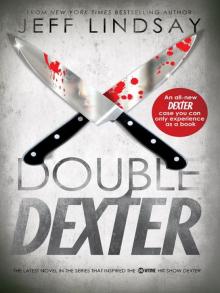 Double Dexter
Double Dexter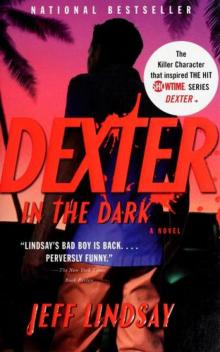 Darkly Dreaming Dexter
Darkly Dreaming Dexter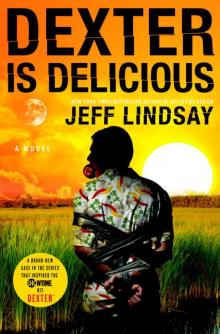 Dexter Is Delicious
Dexter Is Delicious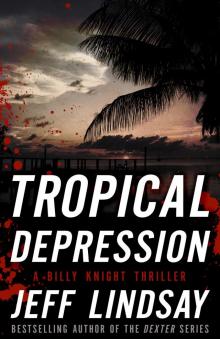 Tropical Depression
Tropical Depression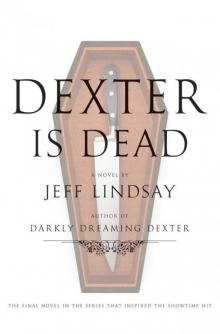 Dexter Is Dead
Dexter Is Dead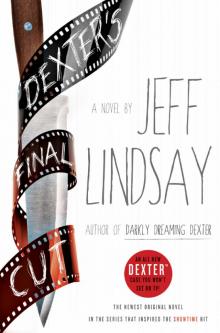 Dexter's Final Cut
Dexter's Final Cut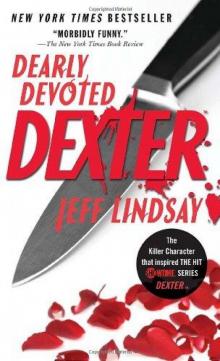 Dearly Devoted Dexter
Dearly Devoted Dexter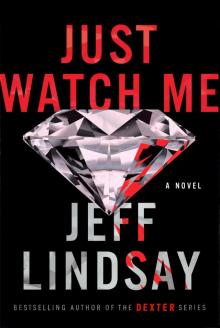 Just Watch Me
Just Watch Me Red Tide
Red Tide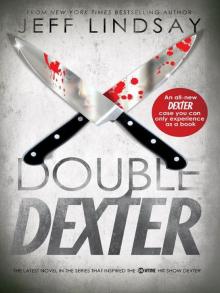 Double Dexter: A Novel
Double Dexter: A Novel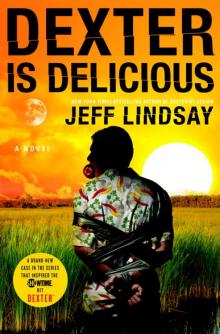 Dexter is Delicious: A Novel
Dexter is Delicious: A Novel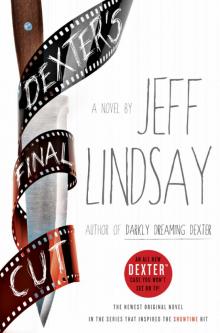 Dexter's Final Cut d-7
Dexter's Final Cut d-7